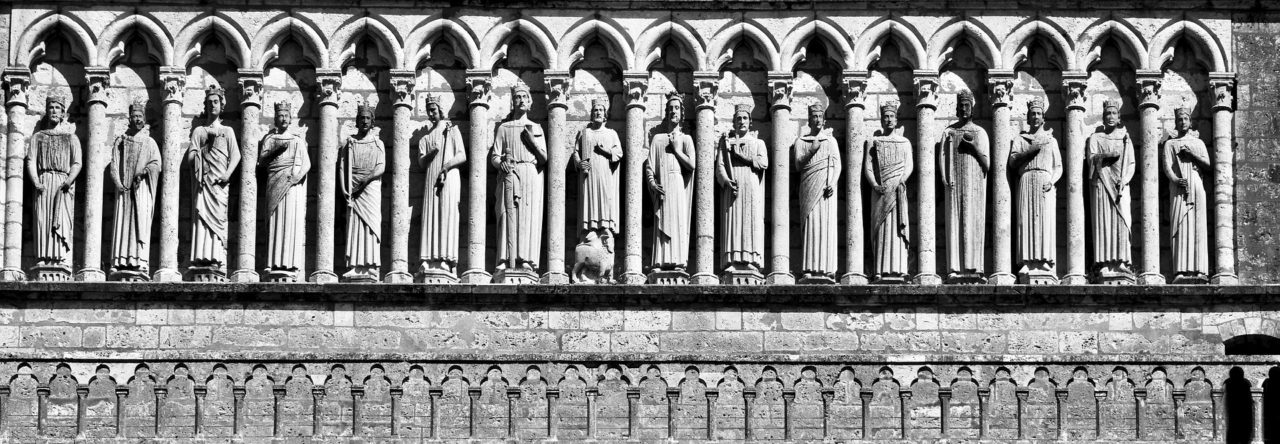
Frithjof Schuon was a metaphysician and a spiritual teacher whose perspective derived from gnosis, i.e. a spiritual and supra-rational ‘heart-knowledge’ that finds its most direct expression in the primordial and universal wisdom referred to as Sophia Perennis — the ‘Perennial Wisdom’.
Patrick Laude, co-author of Frithjof Schuon: Life and Teachings
The living inwardness which penetrates his works does much to bestow on them their remarkable, integrating power — the power to draw both the mind and the soul in the direction of the Heart.
Martin Lings, author of The Eleventh Hour
I have met with no more impressive work in the comparative study of Oriental and Occidental religions.
T.S. Elliot, about Schuon’s first book
Frithjof Schuon is best known as the foremost spokesman of the Sophia Perennis — or Religio Perennis — and as a philosopher in the metaphysical current of Shankara and Plato. He has written more than 20 books on metaphysical, spiritual and ethnic themes as well as having been a regular contributor to journals on comparative religion in both Europe and America. Schuon’s writings have been consistently featured and reviewed in a wide range of scholarly and philosophical publications around the world, respected by both scholars and spiritual authorities.
Schuon was born in 1907 in Basle, Switzerland, of German parents. As a youth, he went to Paris, where he studied for a few years before undertaking a number of trips to North Africa, the Near East and India in order to contact spiritual authorities and witness traditional cultures. Following World War II, he accepted an invitation to travel to the American West, where he lived for several months among the Plains Indians, in whom he has always had a deep interest.
Schuon has written all his major works in French, which began to appear in English translation in 1953. Of his first book, The Transcendent Unity of Religions, T.S. Eliot wrote: “I have met with no more impressive work in the comparative study of Oriental and Occidental religion.”
The traditionalist or “perennialist” perspective began to be enunciated in the West at the beginning of the twentieth century by the French philosopher René Guénon and by the Orientalist and Harvard professor Ananda Coomaraswamy. Fundamentally, this doctrine is the Sanatana Dharma — the “eternal religion” — of Hindu Vedantists. It was formulated in the West, in particular, by Plato, by Meister Eckhart in the Christian world, and is also to be found in Islam with Sufism. Every religion has, besides its literal meaning, an esoteric dimension, which is essential, primordial and universal. This intellectual universality is one of the hallmarks of Schuon’s works, and it gives rise to many fascinating insights into not only the various spiritual traditions, but also history, science and art.
The dominant theme or principle of Schuon’s writings was foreshadowed in his early encounter with a Black marabout who had accompanied some members of his Senegalese village to Switzerland in order to demonstrate their culture. When the young Schuon talked with him, the venerable old man drew a circle with radii on the ground and explained: “God is in the center, all paths lead to Him.”
Other remarks about Frithjof Schuon
Frithjof Schuon’s written opus is the very expression of his powerful didactic genius. Through its objectivity and its rigor, it is an answer to the questions raised by contemporary man who finds himself disarmed in the face of the overwhelming certainties of modern science and the climate of nihilism that surrounds him. However, Schuon is not a bookish metaphysician, like so many others, but he is first of all an inspired man of prayer, a true sage, and … a ‘born gnostic’ who tends to fully ‘incarnate his archetype’ by actualizing all his inner riches.
Jean-Baptiste Aymard, co-author of Frithjof Schuon: Life and Teachings
Schuon was a combination of majesty and humility; of rigor and love. He was made of objectivity and incorruptibility, coupled with compassion. In meeting with him many times during a period of nearly five decades, the immediate personal qualities which constantly struck me were his infinite patience and infinite generosity.
William Stoddart, author of outline of buddhism
“[Schuon is] the most important religious thinker of our century.”
Huston Smith, author of The World’s Religions
